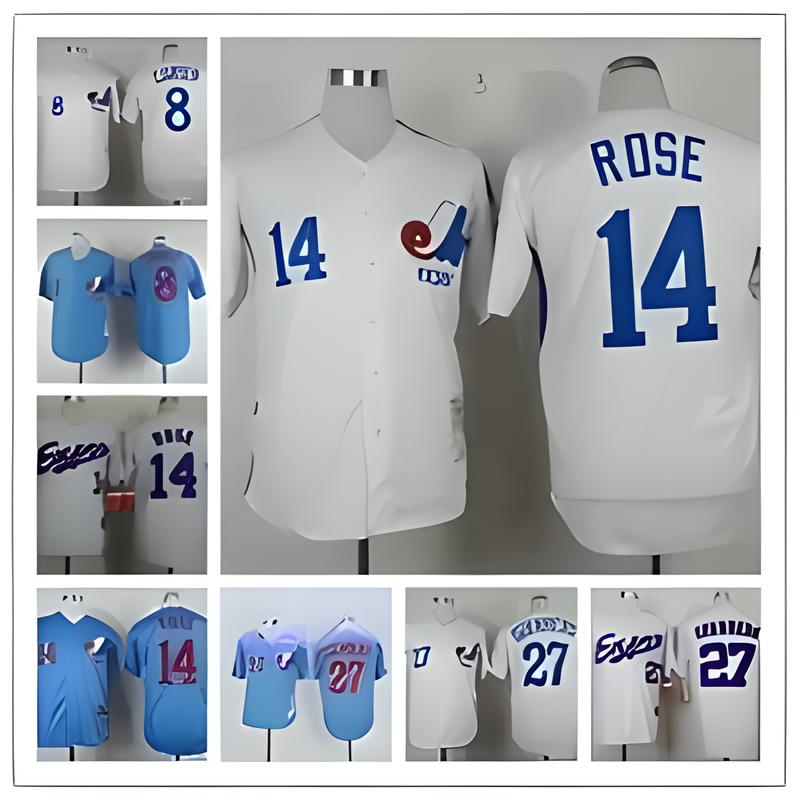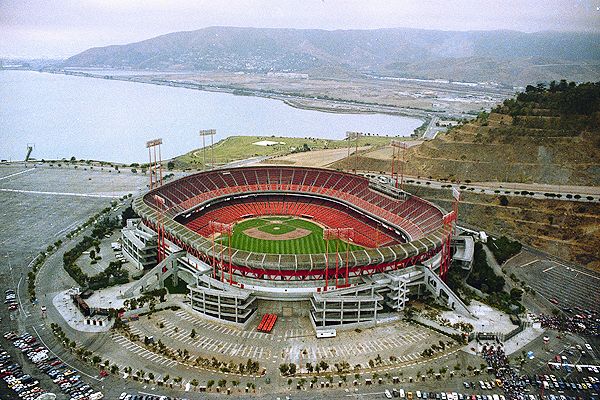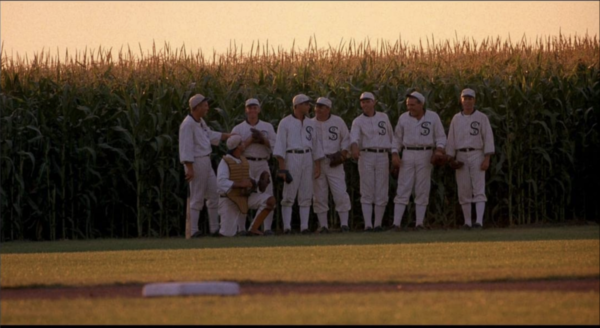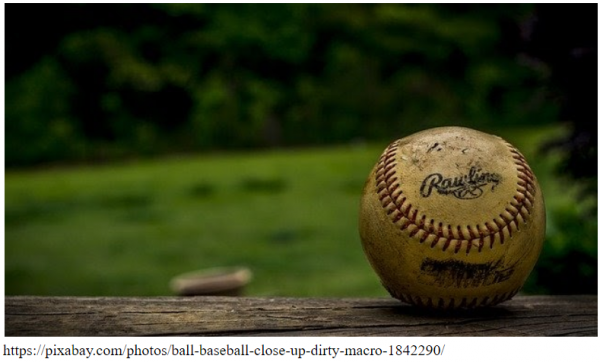
- Image via Wikipedia
The second reason for his breaking of the color line was to demolish some of the barriers of race that were present in the country at the time. Rickey knew that if he could bring Jackie Robinson into the game, he would be able to not only make those in baseball more accepting of African Americans, but through this, other barriers would fall as well. He turned out to pick the right person in this “experiment” since Robinson became very involved in the civil rights movement, making him a great spokesperson for race relations as well as baseball. Rickey could not have been more correct about his civil rights assumption as after Robinson had been in the league long enough to make a name for himself, which did not take long, he started communicating with the leaders of the civil rights movement (Lowenfish 428). It could be seen, “[f]rom reports provided by Wendell Smith and by his own sources in Southern California, Branch Rickey was also thoroughly investigating the personal character of Robinson” (Lowenfish 369). Robinson wrote numerous letters to Rev. Martin Luther King Jr. when King was just beginning his civil rights movement. It was Robinson, in fact, who asked King to serve on one of the earlier committees that planned how to tackle the racial divides in the country. Since King did end up joining this committee, it can be assumed that Rickey indirectly had a great influence over the civil rights movement in the United States.
Once Robinson had already made it into the league, Rickey attempted to make sure he was safe guarded as much as possible and did things such as “plead[ing] with the press not to suffocate Robinson and to allow him to become the great player and fine teammate that he was sure to become” (Lowenfish 431). Rickey had never before taken to the press like this, mostly because he was a scout and was usually not the focal point of major team matters, but also because there had never before been such consternation towards someone entering the game. There were other problems with the welfare of the player as well, but Rickey took the stance that it was best to fight through these and to ignore the various threats. Early on, “Phillies general manager Herb Pennock phoned Rickey and pleaded with him not to bring Robinson [to Philadelphia]. There had been threats on the player’s life, Pennock warned, and he could not guarantee his safety” (Lowenfish 431). To this Rickey replied that Robinson was part of a team and if the Phillies did not want the Dodgers to come, than they were more than welcome to forfeit the game.
Rickey knew not to push his luck. He knew that after he had integrated the game with Robinson, if he attempted to bring too many African American players into the game at once, neither he nor the players would be treated with respect. Rickey was still well aware of the fact that he was, “in a business called professional baseball where no quarter is asked and no quarter is given” (Rickey 250). He was not going to be willing to sacrifice other people’s well being on the business side of baseball in order to implement his integration plan. At this point, he had put himself in such a position where he believed he had a responsibility to the African American community. He did not want to make it look like bringing Robinson in was a complete publicity stunt, and when the second baseman started producing on the field, all of these thoughts were thrown out the window. If Rickey was not worried about being regarded as one of the best scouts in baseball history, he may have done things differently in bringing in African Americans by the boat load, but because he was, it probably helped him make sure that his hand selected players were ready for the big stage before they were brought on. Rickey did not frequently speak publicly about the incident because he knew that was not his roll in the organization, even though he quickly grew to become the most well known scout in the game due to his actions.
Rickey also had many other calculated moves dealing with integration of the game and acceptance of race in the entire nation during his career. He was a member of many committees whose main goal was to decide the affects and ramifications of the increasing number of African Americans on those already in the game and on society as a whole. During these meetings, many parts of the integration were taken into account such as how the teammates of an African American might react when he took the field with them. While he knew that a good number of African American players were good enough to take the field in MLB, he also realized the fact that if they got there and were not happy with their surroundings, they may just leave to go back to the Negro Leagues where they were comfortable. It is also because of this reason that Robinson spent a few months in the minor leagues of the Dodgers’ organization before making his major league debut. While he was probably ready to do so as soon as he was signed by the team, Rickey realized that he had to set Robinson in a place where he could get his mind used to the controversy he was going to face once he reached the highest level of the game (Rickey 253). Although his stay in the minor leagues did not change what he would face once he was called up to the majors, Rickey knew it was important for Robinson to get his mind and body ready for the abuse he would take once he reached Brooklyn.
Many scouts from this era in baseball and those that have come since then have been jealous of the risks that Rickey was willing to take in order to make his team better. Those scouts were obviously not prepared to take the risks Rickey was willing to in order to make their team better (Behn 33). Even though Rickey did face some opposition from some higher ups on his team, and at times had his job in jeopardy, he always pushed through and did what he had to do to get what he wanted done. Rickey also realized that he had to wait his time for some of his movements in the game to have their era.
While Rickey is highly regarded as one of the greatest scouts the game has ever seen, he was relinquished from his teams a few times during his career, perhaps mostly because his ideas were at times so revolutionary that the owner was not willing to put up with his thoughts. He actually left his third team, the Pittsburgh Pirates, in the late stages of his career because he felt the organization was not letting him grow enough. When most people reach this age in their career, they are looking to wind things down and finish what they have to before retirement comes, but Rickey was not that kind of person (Dodson 80). While looking back on his career, Rickey would claim that he eventually accomplished all of the major things he wanted to, but there is no doubt that he left some of his ideas in the wind.
The reason he switched teams during his career was almost always under his own accord. He did not care for people who did not share his beliefs on certain issues, although he did not mind the normal resistance, he took to the mind set that if he was given the job, the organization must already agree with his beliefs. This became evident early in Rickey’s career when “he realized he could never have pioneered signing a black player in St. Louis, the southernmost city in the Major Leagues” (Lowenfish 356). This was partly due to the fact that he knew the further south this tactic was tried, the more resistance it would receive, but he also felt this way because the heads of the St. Louis franchise at the time were in no way open to being the first team to break the color line. Due to all of the social change that Rickey wanted to occur in the game, he truly had to have the backing of management to be able to follow out his plans.
Rickey is highly regarded as one of the best scouts who traveled the nation, going to sandlots across the country, to find Major League ready talent. At one point, this was seen as a waste of time by most scouts, but soon after Rickey started doing it, this traveling became a mark of a successful scout. Soon every scout who wanted to be taken seriously was traveling the country, often disgruntled in doing so, to find talent that everyone else had missed (Lowenfish 309). Without Rickey’s hand guiding the integration movement in baseball, there is no telling when the game would have accepted the first African American between the lines. It is because of Rickey’s perseverance and convincing personality that he was able to get done what many at the time regarded as impossible. Without Rickey’s perseverance in the aspects of life that mattered most to him, he may not be able to be considered a social entrepreneur, but because he continually followed what he thought was right, he no doubt earned that title.
Bill Jordan is a contributor to BaseballReflections.com. He can be reached by e-mail at [email protected].
Works Cited:
Behn, Robert D. “Branch Rickey as a Public Manager: Fulfilling the Eight Responsibilities of Public Management.” Journal of Public Administration Research and Theory: J-PART 7.1 (1997): 1-33.
Dodson, Dan W. “The Integration of Negroes in Baseball.” Journal of Educational Sociology 28.2 (1954): 73-82.
Lowenfish, Lee. Branch Rickey: Baseball’s Ferocious Gentleman. Lincoln, Nebraska: University of Nebraska Press, 2007.
Rickey, Branch. “What is Amateur Sport?” Journal of Educational Sociology. 28.6 (1955): 249-253.

![Reblog this post [with Zemanta]](http://img.zemanta.com/reblog_e.png?x-id=7498b677-31d4-4b73-981a-d7b2c0676551)








